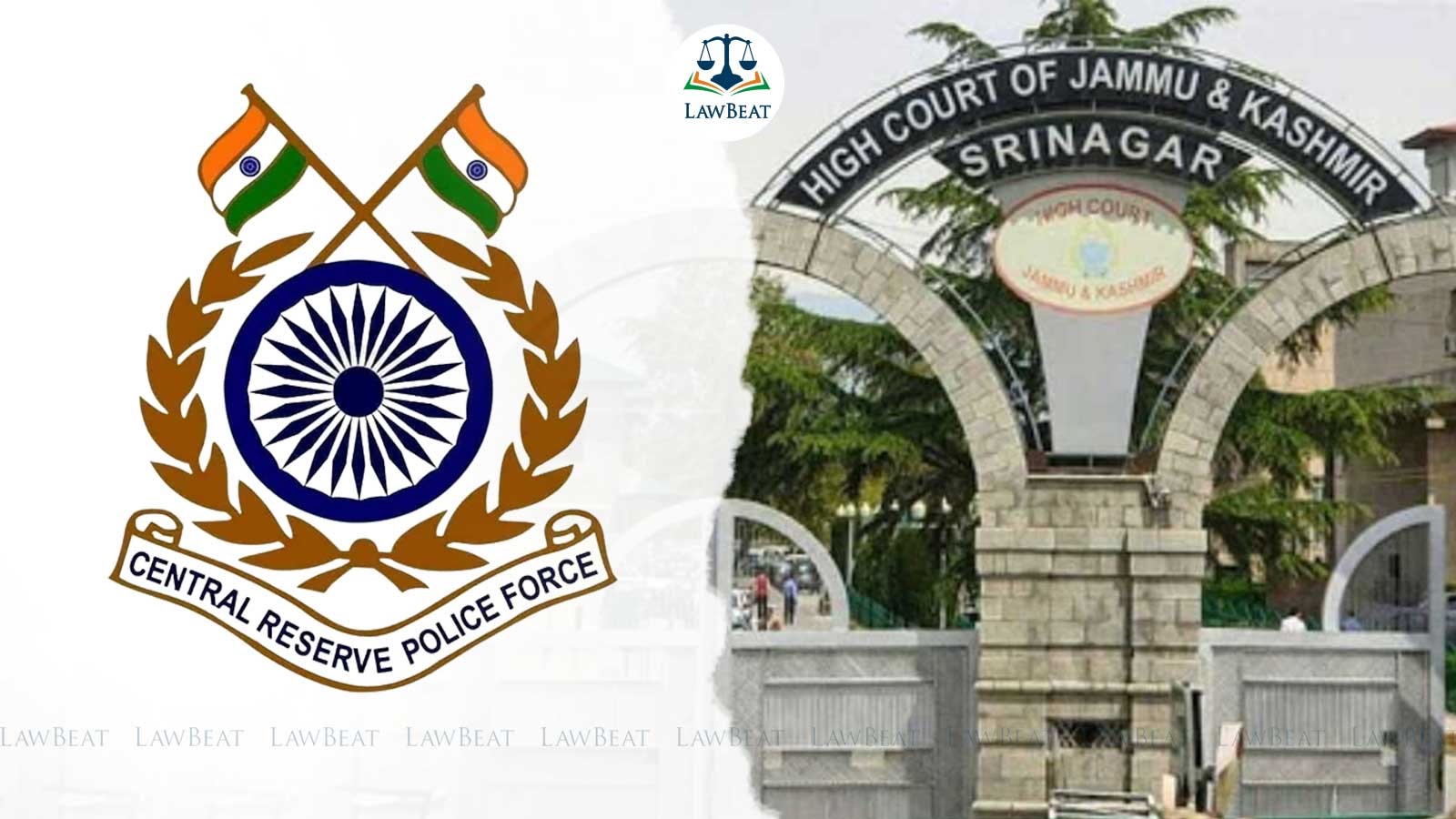J&K and Ladakh HC Affirms CRPF Constable’s Dismissal Over Absence Due to Psychological and Marital Issues

“The petitioner has not placed on record any material to show that there were any emergent domestic issues being faced by him at the time when he actually deserted the Force,” the court said
The High Court of Jammu & Kashmir and Ladakh has upheld the dismissal of a CRPF constable, Mohammad Shahbaz Mir, over his prolonged unauthorised absence from duty citing psychological and marital issues.
Justice Sanjay Dhar, pronounced the judgment on a plea filed by Mohammad Shahbaz Mir (petitioner), appointed as a constable in the CRPF in 1997, who contested his dismissal order dated December 3, 2012.
Advocate Mir Majid Bashir, appearing for the petitioner, argued that his absence was due to psychological disturbances and chronic marital discord. The petitioner went on leave from August 3, 2011, to August 30, 2011, but failed to return to duty, resulting in his arrest and subsequent dismissal from service.
It was further contended that the dismissal was in violation of natural justice and procedural rules under the CRPF Act. He also claimed that all communications, including the dismissal notice, were issued in Hindi, a language Mir could not comprehend.
On the other hand, the respondents, represented by CGSC Nazir Ahmad Bhat, argued that Mir overstayed his leave without authorisation and failed to respond to several notices to resume duty. After a year of absence, Mir was declared a deserter and a departmental inquiry was initiated. Despite numerous opportunities, Mir did not participate in the inquiry, leading to its completion in his absence and his subsequent dismissal.
After reviewing the pleadings and records, the court emphasised that Mir's unauthorised absence was undisputed. The court observed that “The only explanation tendered by the petitioner for his unauthorized absence for about one year upto the date of his apprehension and thereafter from the date of his second desertion w.e.f 09.09.2012 is that he was facing some domestic problems which prevented him from resuming his duties.” However, the divorce deed and custody dispute documents provided by Mir were dated well before his desertion, showing no immediate domestic crisis at the time of his absence. “The petitioner has not placed on record any material to show that there were any emergent domestic issues being faced by him at the time when he actually deserted the Force,” the court said.
The court noted that “The principles of natural justice do not operate in vacuum,” underscoring that principles of natural justice do not require a fresh inquiry when facts are admitted and the employee fails to justify his absence.
The court further highlighted that the respondents followed the procedural rules meticulously, sending multiple communications to Mir's residential address, thereby fulfilling their duty to notify him. The court also dismissed the claim regarding the Hindi language issue, stating that “It is amazing that the petitioner can understand Hindi language when he applies for leave or when he is appointed to the Force, but he is unable to understand the said language, when he admits charges against him and when he is dismissed from service.”
The court dismissed the petition ruling that “the petitioner cannot expect anything other than dismissal from service from his employer.”
Cause Title: MOHAMMAD SHAHBAZ MIR v UNION OF INDIA & OTHERS [SWP No.181/2016]
